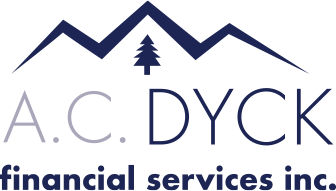When we got married in 1981, my wife thought she had landed an up-and-coming guy! This was because I had a nice car, some money in the bank, a job, and some decent clothes. My car loan was only $4,000 and I had $7,000 in the bank. My wife, on the other hand, had just started her career as a teacher. She also had benefits, a pension, and no debt. Her car was a 1967 Meteor Rideau that she owned outright. Its best feature was a massive trunk that could haul hockey equipment and sticks in with no effort at all! Our combined net worth at that time was around $5,000. We felt that we were loaded!
It only took several months to realize that our financial future was not as rosy as we thought. Within two months of our wedding, my car’s transmission died which cost me almost $1,000 to fix. I was thankful that I had cash to pay the bill, but our savings rate was near zero because our fixed costs like rent, utilities, charitable giving, groceries, and the excitement of starting our lives together was using up all our cash flow from our combined wages.
The job that I had at the time was with the Government of Canada. The job was considered a good job in that there was a pension and some benefits. I had been assured by people that seemed to know what a good job was, that if I stuck with it for several years, I would have a secure future. The challenge with the job was that it was monotonous and routine. Each successive day got more and more difficult for me because I was very bored with the humdrum of that job.
When my wife and I talked about our future, we talked about what it would be like when we could have a combined income of over $40,000 per year. That amount of money seemed astronomical to us, as we did not know anyone in our age and social group who earned that much money. This all changed when we met a person who earned over $80,000! (Remember, this was 1981). When we analyzed the person, his skills, and his job, we realized that this person was not much different that we were. The difference was that this person did not let his past life define his future.
I grew up as the 8th child in a family of 10. My worldview was that of a farm boy from rural Saskatchewan who understood that the secret to success was being faithful and diligent to the job at hand. I did have an education and those small-town experiences reinforced that belief. The issue that I came to understand over time was that one can be diligent and faithful to a job that you are not cut out for.
I left the government job in the fall in 1981 and enrolled into the University of Regina in the Winter of 1982. While in university, I took as many classes as I could, while working at different jobs. Some jobs were in labor, some were in retail, one was in social services and the most lucrative was in sales. Once I learned about time management, I always earned more than $25,000 per year. In my fourth year, I surpassed that, earning $30,000, and in my last year of university, I earned over $40,000. In 1987, with no debt other than the mortgage on the house that we had built in 1986 and still driving the Meteor Rideau, our combined net worth on graduation day was just over $100,000.
The big life lesson that I learned was that I was happiest in sales and most discontent when I had a “job”. Whenever I got a “sales” position, I loved the opportunity to serve people and really loved the commission cheques! It took me about a year to make peace with the idea that a good salesperson can be a valuable person in society. I do not know why I wrestled with my self-worth while learning where my talents really lay, but it was a wonderful day when I decided to follow my talent instead of childhood beliefs.
Al’s Nuggets:
1) Opportunity usually shows up in working clothes.
2) Self-employment is about seeking opportunity whereas jobs are usually about security.
3) Bloom where you are planted. If you are not content, it’s your responsibility to be become happy with your position in life.
4) We can do much more than we realize. Being organized, dedicated to a goal, and working energetically can take you a long way!
5) Net worth = Assets – Liabilities (what you own – what you owe)

